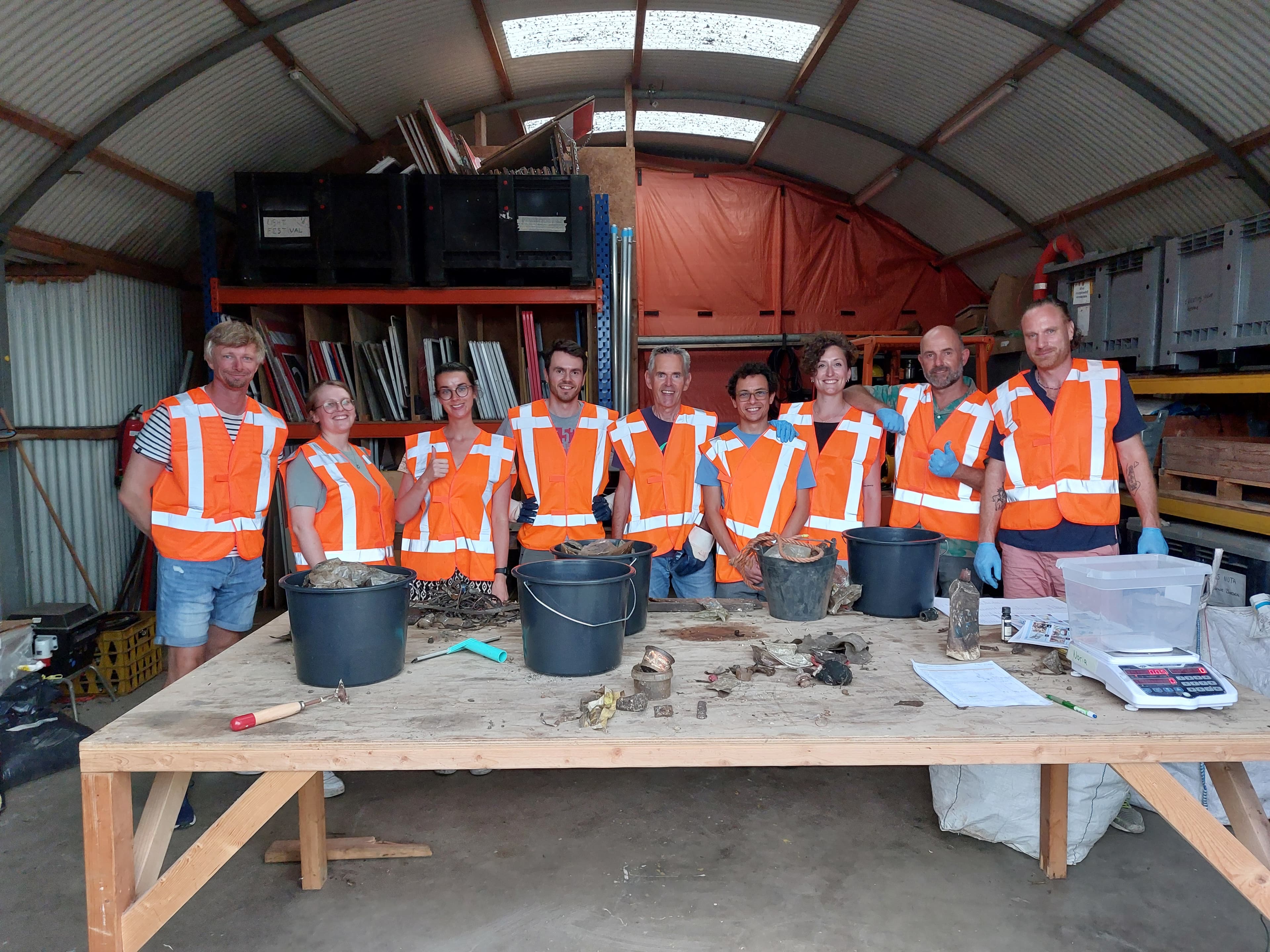Waste Sorting Session and Preliminary Analysis
A OSPAR methodology analysis of two badges of waste retrieved from Amsterdam's waterways.
As part of ongoing efforts to analyze plastic pollution, two batches of waste retrieved by the Canal Cleaner and Shoreliner were collected in July and August 2024. The waste underwent drying before being sorted during a dedicated sessions on August 13 in the harbor of Amsterdam. This sorting sessions brought together project partners, volunteers, and third-party participants to ensure transparency and collaborative engagement.
The waste was analyzed using the OSPAR methodology, a standardized approach outlined in the OSPAR Beach Litter Monitoring Guidelines. This method categorizes litter into predefined groups based on material, size, and type. Items are meticulously sorted, counted, and recorded to enable a detailed analysis of waste composition. By adhering to this protocol, the project ensures data consistency and comparability with other studies addressing marine litter. This systematic approach provides insights into the sources and distribution of litter, contributing to the development of targeted pollution reduction strategies.
Participants were provided with practical guidance, including arrival details, dress recommendations (comfortable clothes that might get dirty), and the assurance that tools, food, and refreshments would be available. While sorting, attendees analyzed the type and volume of waste collected by the devices, with data subsequently shared with Wageningen University & Research (WUR) for further study.
The analysis compared the waste retrieved during the sorting sessions to the data collected during the monitoring phases at the Canal Cleaner and Shoreliner locations. Initial findings offered insights into the types and quantities of litter intercepted by both devices and enabled a preliminary evaluation of their effectiveness. WUR is currently processing these findings approaching conclusions, accompanied by appropriate disclaimers regarding uncertainties.
The sorting sessions and subsequent analysis, enhanced by the use of the OSPAR methodology, highlight the importance of standardized data collection and community involvement in assessing and improving technologies aimed at mitigating plastic pollution in urban waterways.
A publicly available report with the results of this session will be made available on this website in January 2024.
For any question, don't hesitate to contact project manager Francesca Alberti at francesca.alberti@ams-institute.org